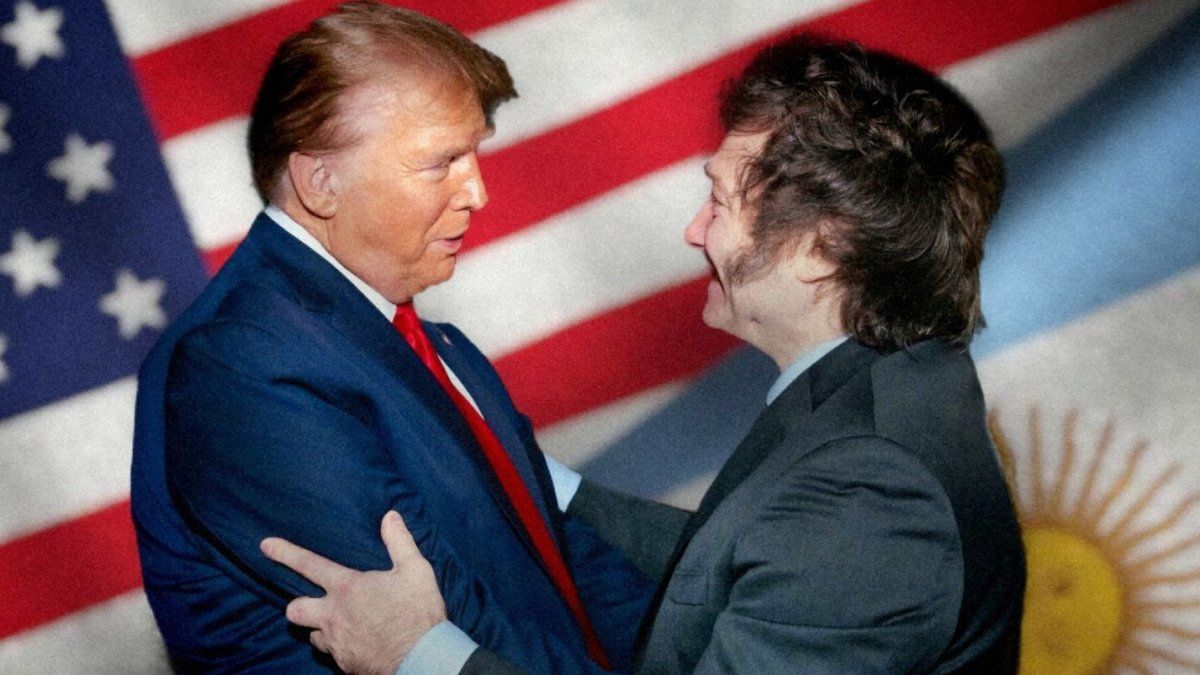A job of tweezers. This is the way in which President Javier Milei thinks slowly approach the goal of closing the next agreement with the IMF. While he has invested much of his mandate to consolidate his link with Donald Trump, the signals on the other side are desired. The commercial war that the United States and China execute under the flotation line of the domestic strategy.
Trump comes from decree 25% tariffs on steel and aluminumsomething that could definitely impact some local export sectors. To this he added yesterday the proposal to apply reciprocal taxes to countries that impose high tariffs on US products, which represents a lifting shot to almost $ 30,000 million commercial exchange with Argentina.
Washington was always close
It is known that the Argentine president will expose On February 22 at a new meeting of the Construvia Political Action Conference (CPAC) In a conclave that will take place in Washington, the same day in which the president of the United States is scheduled. Milei acknowledges that he has the challenge of demonstrating some kind of preference from Trump for Argentina, to justify the follow -up of the “Austrian” economist with the decisions of the White House head. But Milei’s participation in conservative events may not reach now. Therefore, as he could know Scope, The Argentine government works counterreloj to Achieve the photo of Trump and Milei in the White House, Something that would give a formal character to the visit and that would influence the IMF.
According to the sources consulted, that image would have several uses for the Argentine government. The first would convey that the Trump-Milei relationship enjoys good health, enough to leave a speculative door open on a possible backup of Trump and his bureaucracy -Principically of the Treasury Department-, before the IMF. The second would open the door to negotiate some kind of exceptionas Donald Trump did during his first term of Argentine metal exports to the United States.
Find in the United States Department of the Treasury
Although the Minister Luis Caputo He pointed out that he hopes that the agreement will close in the first four -month period of the year, the times that Washington manages could be oriented to MayAt least. This is because the replacement of officials travels through extremely delicate walks and because it still remains to be seen how damaged the possibility of Argentina will be presented as regional “ally” in the middle of the intifada Trumpist.
The Foreign Ministry now works to build the dialogue channels in Washington. It has chances of build a good relationship With those who are going to intercede with the IMF to “fold” the requirements imposed by the IMF staff on Argentina. He would help Trump with Milei in the White House.
The key positions are those of Secretary and Undersecretary of Treasury of the United States. On the one hand, it is Scott BesentPresident Trump’s main economic advisor, who supervises the country’s financial policies. Besent is a 62 -year -old billionaire and geopolitical strategist, founder of Key Square Capital Management and former partner of Soros Fund Management, where he played a key role in the operations of George Soros, including the famous commitment against the sterling pound in 1992.
But where is the bet of the Foreign Ministry headed by Gerardo Werthein, is with Ben Harrisan American economist who currently occupies the position of Undersecretary of Treasury for Economic Policy in the United States Department of the Treasury. In this role, advises the Secretary of the Treasury on matters of economic and financial policy, including the formulation of fiscal policies and the supervision of the national economy.
There are numerous interesting data. Harris has a solid academic training in economics, with a PH.D. In Economics of the George Washington University, a Master in Economics at the University of Cornell, a master’s degree in quantitative methods of Columbia University and a degree in Economics from the University of Tufts. But the detail that generates enthusiasm – and insomnia – in the Argentine team is that Harris He has expressed critical opinions about IMF policies. In particular, he has questioned the practice of IMF surcharges, arguing that they are inappropriate and unjustifiable, especially in contexts where countries face economic difficulties.
Besides, has pointed out that IMF policies can be counterproductivesince, sometimes, the austerity measures imposed by the institution can aggravate economic crises instead of mitigating them. For example, in a joint analysis with Aaron Sojourner, Harris stressed that factors such as price increases and Economic uncertainty can have negative effects In the world economy, especially when IMF policies do not adequately address these challenges. In Buenos Aires they are excited.
Source: Ambito




